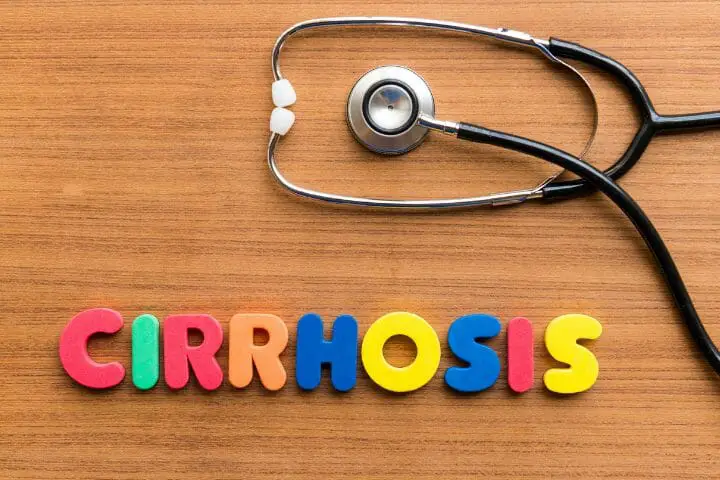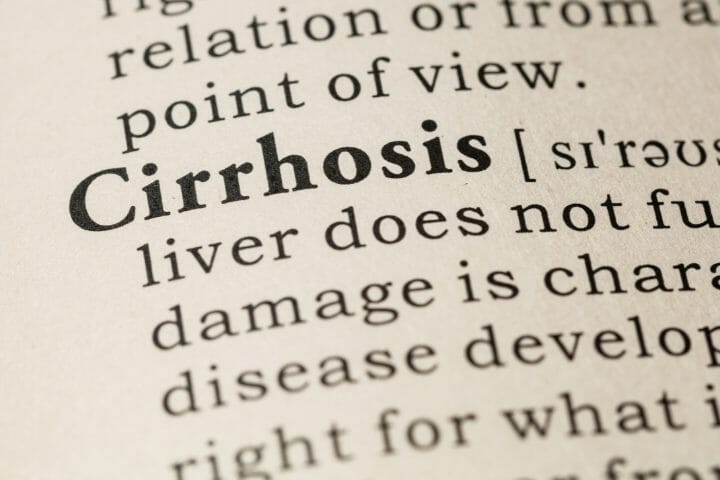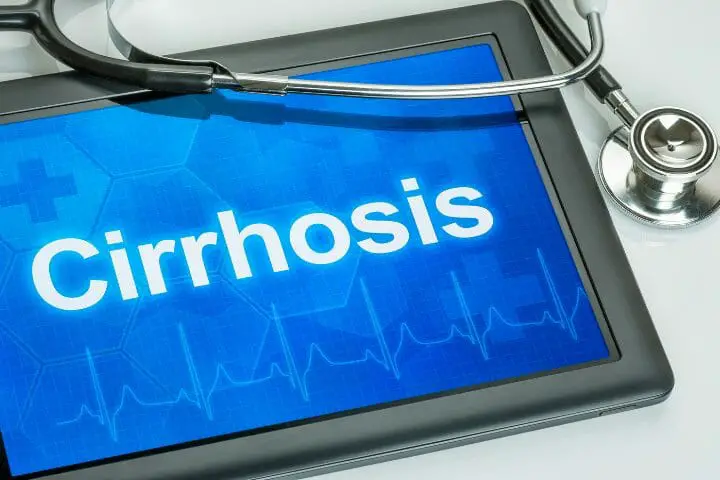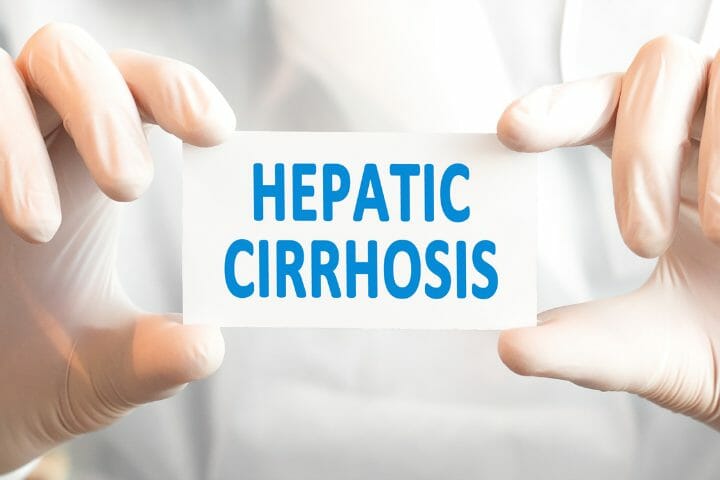Cirrhosis is a disease whose symptoms worsen with time. It may cause you to lose your ability to work. But can you get disability for cirrhosis? What is the process to file for a disability claim, and what will the SSA evaluate? Let’s find out.
Contents
Cirrhosis affects almost 1 in 400 adults in the US. If you are struggling with cirrhosis, you may be wondering if you can get disability benefits. Unfortunately, there is no easy answer to this question. Each case is evaluated on its own merits, and the Social Security Administration will consider several factors when deciding.

What is Cirrhosis?
A scarred liver leads to cirrhosis. This scarring may be due to many factors, including viral infections, alcohol abuse, and fatty liver disease.
Cirrhosis can lead to severe complications, including liver failure, ascites (fluid accumulation in the abdomen), and gastrointestinal bleeding. Treatment for cirrhosis generally focuses on preventing further liver damage and managing the symptoms of the disease.
Cirrhosis is a progressive disease, meaning that it typically gets worse over time. In some cases, however, the damage to the liver can be reversed with early diagnosis and treatment. With proper medical care, many people with cirrhosis can live long and healthy lives.

Causes of Liver Cirrhosis
There are many different reasons why liver cirrhosis happens, but the most common include excessive viral hepatitis, alcoholism, and NAFLD/NASH. While there are many possible causes, these three are the most common.
- Excessive alcohol consumption is perhaps the most well-known cause of liver cirrhosis. Alcohol abuse puts a tremendous amount of strain on the liver, causing it to become inflamed and eventually scarred. Over time, this can lead to cirrhosis.
- Viral hepatitis is another leading cause of liver cirrhosis. Hepatitis C is the most common type of viral hepatitis, and it can lead to cirrhosis. Hepatitis B is another type of viral hepatitis that can cause cirrhosis, though it is not as common.
- Fatty liver disease is a condition in which there is an accumulation of fat in the liver. This can be due to obesity, diabetes, and certain medications. Fatty liver disease can lead to cirrhosis if it is not treated correctly.
These are just a few of the common causes. If you are at risk for this condition, it is essential to speak with your doctor about ways to prevent it. Treatment options are available for those who have already developed cirrhosis, but prevention is the best course of action.
You might also like to read: Can You Get Disability For Fatty Liver Disease?
Can You Get Disability For Cirrhosis?
Cirrhosis is a severe medical condition that can lead to organ failure and death. If you have cirrhosis, you may be wondering if you can qualify for disability benefits. The answer depends on the severity of your condition and how it affects your ability to work.
If you have cirrhosis, your liver is damaged and scarred. This makes it challenging for your liver to function correctly. Cirrhosis can lead to several serious complications, such as liver cancer, kidney failure, and gastrointestinal bleeding. These complications can make it difficult to work and support yourself.
If you have cirrhosis, you may be eligible for disability benefits. To qualify, you must have a medical condition that meets the criteria of the Social Security Administration (SSA). The SSA has a specific listing (Listing 5.05) for liver disease, which includes cirrhosis.
To meet the listing, you must have evidence of liver damage, such as a biopsy or imaging test. You must also have proof of liver dysfunction, such as abnormal liver enzymes. In addition, you must be unable to work due to your cirrhosis.

Can You Get A Disability For Cirrhosis Of The Liver?
Cirrhosis of the liver is a condition that can lead to severe complications, including liver failure. If you have cirrhosis, you may be able to get disability benefits from the Social Security Administration (SSA).
To qualify for disability benefits, you must have a medical condition that meets the SSA’s definition of disability. The SSA defines disability as a mental or a physical condition that prevents you from working and is expected to last at least one year or result in death.
Cirrhosis of the liver can meet the SSA’s definition of disability if it causes severe symptoms that prevent you from working. For example, if your cirrhosis is due to hepatitis C and you experience fatigue, nausea, and pain that make it impossible to work, you may qualify for disability benefits.
If you don’t have symptoms that prevent you from working, you may still be eligible for benefits if your condition results in death within a year.
To qualify for disability benefits, you must first have worked enough years to earn enough “credits.” The credits you need depend on your age. For example, if you’re under 24, you need six credits. If you’re above 50, you need 20 credits.
You might also like to read: Can You Get Disability Benefits For High Blood Pressure?
Medical Criteria Needed to Qualify with Cirrhosis of the Liver
Cirrhosis of the liver is a severe and progressive condition in which scar tissue replaces healthy liver tissue. This scarring prevents the liver from functioning properly and can lead to life-threatening complications.
To qualify for disability benefits with cirrhosis of the liver, you must meet specific medical criteria. First, you must have a documented history of the condition. This can include records from your doctor, hospital, or other medical providers.
Second, you must show that your cirrhosis of the liver is severe enough to pose a significant functional limitation. This means that your condition must significantly interfere with your ability to perform basic activities of daily living or participate in work activities.
Finally, you must show that your condition will not improve significantly in the future. This you can demonstrate with medical evidence such as test results, treatment plans, and prognoses from your doctors.
If you can meet all of these criteria, you may be eligible for disability benefits. If you have questions about whether you qualify, or need help applying for benefits, consider speaking with a qualified disability attorney.

Understanding SSA’s Blue Book Listings For Cirrhosis
The Blue Book is a reference manual for medicine that disability examiners will use to evaluate your claim. The Blue Book provides a comprehensive list of precise criteria and symptoms connected to cirrhosis of the liver that can be useful to assess whether or not your disease is severe enough to qualify you for disability compensation.
The liver’s cirrhosis is discussed in the Blue Book under “chronic liver disease” section 5.05. This sections lists out diseases such as autoimmune hepatitis, chronic liver disease, cirrhosis and liver failure. You may, however, come across an additional listing in the Blue Book as a result of the liver’s close connection to a variety of other bodily systems.
For instance, if you have lost a large amount of weight due to your cirrhosis, you may meet the criterion in section 5.08, which deals with weight loss due to any digestive illness.
The following is a list of the most critical medical evidence that you will need to supply to have the greatest possibility of having your application for Social Security Disability Insurance (SSDI) granted.
It is of the utmost significance to work with your health care providers to ensure that you have finished all of the medical tests necessary by the SSA and that all of your medical evidence is in order. This may be accomplished by working together with your physician and your disability lawyers.
You might also like to read: Can You Get Disability Benefits For High Blood Pressure?
Evidence Needed to be Related to Your Cirrhosis Diagnosis
The Blue Book requires a thorough medical history of your liver illness as the first piece of evidence. Here are some things you should be able to show.
Your doctor should keep track of your symptoms, the evolution of your chronic liver disease, the results of a complete physical checkup, and the effects of any treatment that has been tried. It’s important to tell your doctor if you have any of the following symptoms:
- Itchy (pruritus)
- Weakness and exhaustion
- Unwanted weight loss, nausea, and loss of appetite
- Insomnia and other sleep problems
- Check to see if any of the following indicators have been noted in your medical history:
- If you’re experiencing swelling in your arms or legs, you may have a problem with fluid retention.
- The yellowing of the skin or eyes (jaundice)
- Inflammation of the spleen and liver
- Affectation of the mind

Investigations into the coagulation process:
- Blood coagulation studies, such as the INR and platelets, demonstrate how well the blood can clot, controlled by the liver.
- X-rays, CAT scans, MRIs, and ultrasounds can all reveal signs of cirrhosis, such as scarring or an enlarged liver.
- Results of any liver biopsy that has been performed
- As a result of internal bleeding, you may have needed a blood transfusion and received at least two units of blood during your stay; make sure these documents are included in your application.
Those who have been in this condition for a year or more usually have their claims approved by the Social Security Administration (SSA).
Evidence Needed to be Related to Affected Body Systems
Your chronic liver disease may affect other organs in some situations. Assuming this is the case, you must adequately document the following information:
- A high serum creatinine level (above 2 mg/dL) indicates kidney failure.
- Retention of sodium is noticeable (less than ten mEq per liter)
- Decreased excretion of urine (less than 500 mL in 24 hours)
- Chronic obstructive pulmonary disease
- On room air, a decrease in arterial oxygenation (paO2)
- Problems with the nervous system
- A shift in one’s mental state
- The consciousness that has been altered in some way, such as confusion, delusion, or coma

Evidence Needed Relating to Your Cirrhosis Treatments
The treatment for cirrhosis will be determined by both the source of the condition and the degree to which it has progressed. Even though there is no known cure for the disease, medication may sometimes be able to slow or stop its progression.
The Social Security Administration (SSA) will need to know what therapies you have received, how you have responded to those treatments, and, most crucially if your health condition has worsened despite the treatments you have received.
Make sure that your doctor has recorded the following in your medical history:
- Medications that have been prescribed to you
- The effects of treatments that you have attempted but possibly been unsuccessful with
- transfusions of blood that you would have required at the time
- Any medical procedures that are associated with your liver condition, such as a paracentesis
- Any operations or treatments, such as endoscopic retrograde cholangiopancreatography (ERCP) or liver biopsies that you may have undergone, include operative notes or pathology reports. Any modifications to your lifestyle that your doctor has instructed you to implement.
- Any associated physical consequences, such as a lack of strength, neurological issues, cardiac issues, or intellectual challenges
You might also like to read: Can You Get Disability For Psoriatic Arthritis?
Evidence Needed to relate Your Quality of Life and Ability to Selfcare
The Blue Book digestive listing disqualifies many cirrhosis patients from receiving SSDI compensation. There is a possibility that you are still unfit for employment. If this is the case, your gastroenterologist should offer medical notes describing their view regarding your limitations and incapacity to work.
The more detailed your doctor is about your limits, such as your capacity to walk without acute breathlessness or your ability to take a shower without assistance, the greater your chances are of having your application for disability benefits approved.

Steps You Can Take to Win Your Disability Claim
If you’re seeking disability benefits, there are several steps you can take to improve your chances of winning your claim. Here are a few things to keep in mind:
- Gather as much evidence as possible. This includes medical records, treatment notes, and any other documentation that can support your case. More evidence will make your claim stronger.
- Be detailed in your application. When filling out forms or answering questions, give clear and concise answers. The more information you provide, the better your chances of success.
- Stay organized. This will help you stay on top of things and make it easier to reference information when you need it. Keep all of your documents in one place and make copies of everything.
- Be patient. The disability claims process can be slow, so it’s essential to be patient and keep your expectations realistic. If you’re denied benefits, don’t give up – appeal the decision and continue fighting for what you deserve.
You might also like to read: Can You Get Disability For Lymphedema?
What Is Alcoholic Cirrhosis?
Alcoholic cirrhosis is a severe condition that can lead to liver failure. It occurs when scar tissue forms in the liver due to excess consumption of alcohol, preventing it from working correctly. Alcoholic liver disease happens due to excessive alcohol abuse, so it’s essential to be aware of the risks and take steps to protect your liver.
Symptoms of alcoholic cirrhosis may not appear until the damage is already severe. They can easily include fatigue, weight loss, yellowing of the skin (jaundice), bruises, and bleeding. If you experience any of these symptoms, see your doctor immediately.

Can I Get Approved for Disability Because of My Alcoholic Cirrhosis?
If you cannot work because of alcoholic cirrhosis, you may be eligible for disability benefits through the Social Security Administration (SSA). To qualify for disability benefits, you must meet the SSA’s definition of disabled, which requires that you have a medical condition for at least one year or result in death. Also, if you aren’t working or are earning $1,310 or less, you can avail of SSA benefits.
Frequently Asked Questions
Can you live 20 years with cirrhosis?
People with cirrhosis classified as Class A have the most favorable prognosis, with a life expectancy of 15 to 20 years. Class B cirrhosis patients are considered good health, and they typically have a life expectancy of between 6 and 10 years. As a direct consequence of this, these individuals have a lot of time on their hands to look into more advanced treatment options, such as getting a liver transplant.
What are the four stages of cirrhosis?
Cirrhosis is a condition in which the liver becomes damaged and scarred. This can happen over many years and eventually leads to liver failure. There are four main stages of cirrhosis:
Compensated cirrhosis
Decompensated cirrhosis
Septic shock
Liver transplant
Can You Get Disability For Hep C?
If they satisfy the standards listed in the Listing of Impairments section of the SSA’s website under Section 5.05, labeled “Chronic liver illness,” a person with hepatitis C may be eligible for disability income from the government.
Wrap Up
If you have Cirrhosis, it could be a disabling disease that can stop you from doing your activities of daily living and being gainfully employed. You should file for a disability claim with the SSA to get disability benefits for it. We have covered in detail the entire process of filing a disability claim with Cirrhosis.
Thank you for reading the article, and we hope we have covered all your queries. If you have further doubts, do reach out to us and we will try to help you as best we can.
